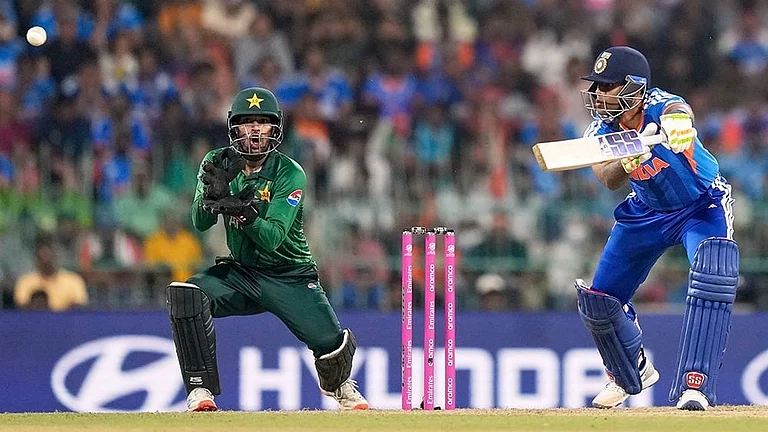Many years ago I was told that "sabra" does not stand merely for those attractive Israeli fighting women. It is a desert fruit which is rough on the outside but soft on the inside. The finance minister had a similar task to perform with this budget, before the nuclear explosions and the consequent sanctions. He had with his budget to do many harsh things but also be friendly enough to l stimulate economic growth l kickstart industrial production l keep inflationary tendencies in check l stimulate and attract foreign funds in all manner of ways l substantially increase public investment in infrastructure and agriculture l keep his partys promise to save Indian industries adversely affected by foreign competition l stimulate demand in industries that have suffered a decline l show a desire to bring down the deficit l increase the rate of domestic savings l prevent interest rates from shooting up l improve efficiencies in the economy.
The sanctions have in a way made his task a little easier. The country is now ready for some harsh decisions. So it will accept a temporary surcharge on income taxes and import duties. It will accept an increase in protective duties to industries like steel that have been adversely affected by the currency crises in Southeast Asia and South Korea. The government can now ignore the learning of 1990 and encourage unreliable and volatile non-resident Indian deposits and investments by foreign institutional investors.
Incentives to promote savings will now return in a big way. They will particularly focus on financial savings to direct more funds into the capital market. There could even be a freeze on paying out at least some of the increase due to government employees as per the revised Pay Commission recommendations.
There will be stimuli for foreign investment; fresh incentives are likely for new FDI. Now that we have thrust our way to the doors of the nuclear club, swadeshi is no longer as important. Mr Sinha will raise the prices of diesel, kerosene, LPG, railway passenger and freight rates, fertilisers, and such other subsidies that do not target the poor. Tax laws could become much harsher in the penalties for non-compliance and evasion. At the same time, a new and much more generous voluntary disclosure of black money and overseas funds, might be introduced.
Privatisation and more aggressive disinvestment of government holdings in public enterprises is to be expected. Reduction in some excise dutiesfor example on automobiles, is on the cards. We might even see a voluntary retirement scheme being introduced for government employees.
An immediate fallout has been the decline of the rupee, long called for by exporters. But its continuing and sharp fall might discourage foreign investments. The higher risk perception of India will increase the cost of overseas borrowings. If this lowers our credit rating, that will make debt-servicing much more expensive, and put pressure on domestic interest rates.
Will the actions described here achieve their objectives? A great deal will depend on the nature of the sanctions, how many countries join in imposing them, and for how long. The indications today appear to be that the US will be joined only by Canada, Japan, and possibly Germany. On past form, the latter two will find ways to get around their sanctions. Multilateral agency loans may not be affected. Even the US seems to have considerable dissent about their course of action. If our diplomacy is well-executed, the sanctions may be weak while they last, and may not last more than six months. But we must watch out for the strong China and Pakistan lobbies, and the wild extremists in the US legislatures. Our American diplomatic representations at this time seem to be inept and unable to put in the energy and effort that is needed.
There is no doubt that this government is different from the ones led by the Congress or those who had belonged to it. It is a change. We need to study the BJPs utterances of the past more carefully to see what else the future may hold.
S.L. Rao was director-general of the National Council of Applied Economic Research
























